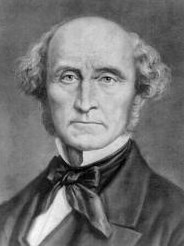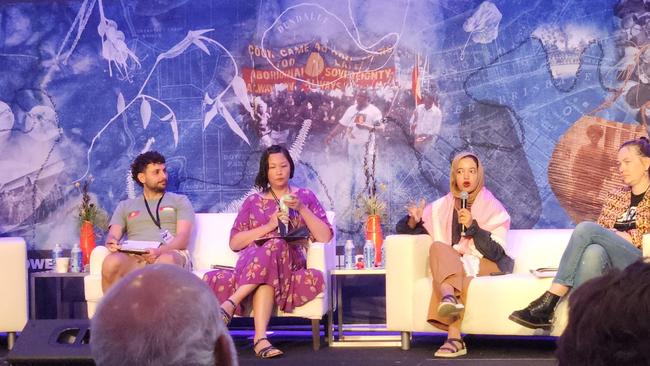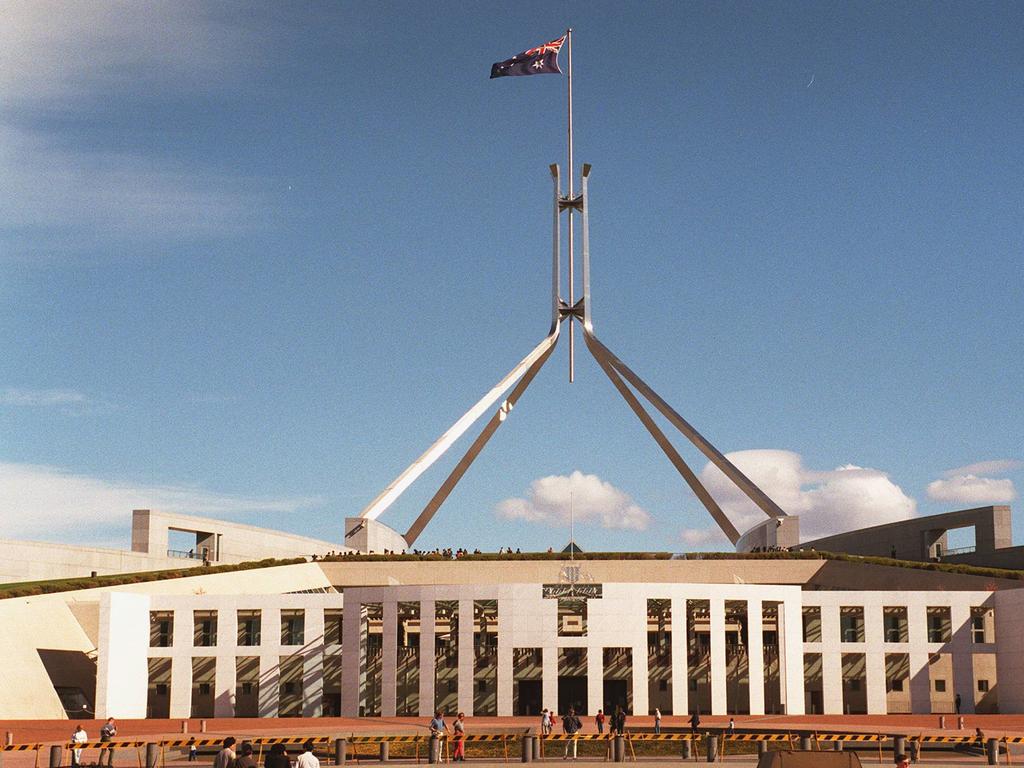Academic wisdom lost in pursuit of anger and avarice
A lurch towards activism and a focus on funding have desecrated our universities. They should once again become safe spaces – for the getting of wisdom.

What have our universities become? What have they lost? Yes, they are reliable providers of professional training, as Western universities have been since Bologna was founded nearly 1000 years ago. Yes, they are centres of research excellence in some fields, on the model devised in Germany 200 years ago. Yes, they are major exporters, processing a great many overseas students.
But what’s happened to the “wisdom function”: the idea that universities are repositories of accumulated humane learning to be passed on to the next generation (some of it anyway)? What’s going on when a university hosts something called a “symposium” (originally the title of a Platonic dialogue, a reflective philosophical conversation) that’s really just a platform for abusive racism? Protest or activist behaviour has flourished in universities since the ’60s, but new depths seem to have been plumbed at QUT and elsewhere recently. What on earth are we to expect of our future educated classes when as students they see not serious reflection but this sort of behaviour, modelled by quasi-academics?
It’s not that political activism is inconsistent with philosophical reflection. John Stuart Mill was the pre-eminent English-speaking philosopher and political economist of the 19th century – but also a hugely influential progressive reformer, a leading political advocate for the rights of women and the disenfranchised.
There’s a riveting moment in Mill’s autobiography when he’s looking back at his early adulthood. He had spent his life since the age of three being educated by his father in how to be, in his words, “a reformer of the world”. That was how he, like many young idealists, planned to spend the rest of his life.
But Mill was trained for it from birth, like some kind of professional tennis champion. Then, at about the age of 20, “it occurred to me to put the question directly to myself, ‘Suppose that all your objects in life were realised; that all the changes in institutions and opinions which you are looking forward to could be completely effected at this very instant; would this be a great joy and happiness to you?’ And an irrepressible self-consciousness distinctly answered, ‘No!’ At this my heart sank within me: the whole foundation on which my life was constructed fell down.”
This was serious. Mill suffered a genuine mental health crisis, a nervous breakdown. What was the meaning of his life, if not to “realise these objects”? Once you have solved all the problems of materiality and society, once we are all relatively (equally?) healthy, free and prosperous, once science, economics, industry, medicine, social reform, universal justice, and of course these wonderful AIs, have all done their jobs, once civilisation has delivered all those things … then what? What is the final purpose of it all? What’s the real point, the “end”, of being alive and human?

As a philosopher, Mill knew very well that for Socrates and Plato, for the School of Athens, the distant prototype of our universities, that final “end” was, quite simply, philosophical discussion: to contemplate and clarify the great concepts of justice, truth, beauty and the Good. So Mill’s own answer to what the Hitchhiker’s Guide would call “the ultimate question” was an (ancient, rival) variant of Socrates’ answer. The way he recovered, he says, was to read poetry – specifically, the poems of his older contemporary William Wordsworth (the author detail isn’t crucial here – for “poetry” think any literary thought about moments of epiphany when contemplating individual human lives). In reading this book, says Mill,
“I seemed to learn what would be the perennial sources of happiness, when all the greater evils of life shall have been removed.”
Importantly, Mill did not mean merely that one poet knows all the answers to how to be happy, so we can all just follow the recipe. Yes, he found that this poet seemed to understand what were the important things in the lives he wrote about – mainly moments of deep connection to other lives. But Mill also meant something else: that the activity of reading this book made him happy in itself: as if he had understood the point of it all, of human life itself, while actually doing the reading. “I seemed to learn”, he says: “I felt while I was reading as if I was learning.” The moments of exposure to this great poet were themselves moments of meaning, of “joy and happiness”. As with any great book, reading is an end not a means.
So this philosopher of liberalism who became a leading liberal reformer had seen at an undergraduate age that a complete life is not just about fixing up the morally and materially bad stuff. It’s what you do with it then. And what you do is, not to go fishing, or cultivate your garden, but weirdly, to think about the ends of life.

Yes, gardening and fishing are also ends in themselves. But the true meaning of life, on this deeply Western but also somehow Zen account, is only to be found in the search for the meaning of life. And what’s more, this kind of activity, beyond all others, is a liberation. It literally makes us free – indeed, it shows us what freedom actually is. A liberal education in the classic texts of our civilisation frees the scholar to do what freedom is ultimately for: to think about final values in the company of “master spirits”, as another great poet, John Milton, called them.
There’s a paradox here, though. It’s that you have to join this company to let it free you. A “liberal” education, a truly humane education, is precisely “liberating”, freedom-inducing: but that does not mean limitless freedom of choice. Choice is a binary issue for liberalism in education. The “educable” student is either a vessel to be filled, a blank slate to be written on (the model of John Locke in England), or a mysterious “natural” core which should be allowed to flower on its own (the model of Jean-Jacques Rousseau). Mill himself was filled up in a Lockean manner with Greek, maths, classic texts – and progressive ideas. He had a crisis when the ideas met a counter-idea – but at least he knew that he had to turn to books for the solution, and he found a great one to rejuvenate his reforming spirit.
On the other hand, the fictional student-hero of Rousseau’s great treatise on education, Emile, is only allowed one book (Robinson Crusoe: think about that!). And of course he has no crisis, as he is designed, like an AI, to embody his author’s radical new theories of human nature and politics. The treatise rejects the entire conversation of civilisation and leaves its poor subject – or victim – to discover his sentiments and preferences “naturally”. In practice this means he is always guided in his choices by an omniscient tutor. Inscribing the mind with the hyper-lives of classic books would prevent it from choosing its true self, from getting as close as possible to the “state of nature” (that is, it would dilute the influence of the teacher). You see where this is going. A conception of the “natural” child leaves a vacuum to be filled up by progressive ideas. Rousseau’s heirs have been Dewey, Piaget, and modern theories of “child-centred” and “constructivist” learning.
In a truly humane education, the integrated, novice life grows organically as it is invaluated into that company or commonwealth of “master spirits”. Consummating the active life in the contemplative realm, the “kingdom of ends”, should be (as it also is in Chinese thought) the prospect of all true education: a lifelong reminder of what the student is actually living for, “the perennial sources” of happiness and joy. And there is a feedback loop: those sources can also feed the active life, as they did Mill’s.
Instead, Rousseau-type theories of child-centred choice have resulted in the ends of education becoming tendentious: political, not philosophical. The modern Emile has been exposed for half a century to tutors who withhold great books but teach him to be angry. He will never be a great reformer of the world, but he will always be angry. We have witnessed the rapid displacement of the contemplative realm, subordinated to and distorted by a premature and superficial activism.
Chicago sociologist Edward Shils saw this happening in the 1990s. “Some teachers nowadays think that the necessity and desirability of the destruction of existing society and its cultural traditions should be incorporated into the syllabuses which they prepare for their students. They think that as university teachers they have a unique opportunity as well as a moral obligation to further the cause of revolution. They think such activities should be carried on with all the guarantees afforded by the rule of a full academic freedom.”
When the liberal-progressive education turns activist, the very notion of academic freedom becomes confused. Freedom ceases to be an end in itself, a contemplative life condition for all students to aspire to. It is now a means to pursue a political end. Mill experienced the disconnect at the age of 20, but found the solution by returning to books. We have turned away from them. And this progressive turn has been highly consequential in our education faculties, which model social activism as a standard part of teacher training. It has landed us in the crises facing QUT, Columbia and many other universities.
Meanwhile, research grant funding is so structured and conceived at every level that all the prestige, promotions and incentives in our academies now lie there. Not with being the kind of teacher that students remember all their lives.
Teachers see their task as essentially to tell students about their research – before returning to the next grant application. Offering unmediated primary texts from the past, with their dynamic, genuinely critical thinking, to be patiently attended to by teacher and students together, might diminish the value of the academic’s own work: might question the validity of that conception of research itself.
The primary text is almost a threat to the research career. This tendency becomes toxic when academics believe primarily in their research as a “critique” of the past – or an agent of change in the present. Students absorb the suspicion that the great texts of the past are trying, perhaps unconsciously, to hide something: acting as unwitting agents of a power structure. All of that needs exposing.
The company of “master spirits” becomes something not to join, but to subvert. Hence undergraduate study programs, entire university disciplines, have simultaneously tended both to fragment into a series of research specialisms, and to aggregate into new disciplines of a more activist or social-justice kind, with their own new canons, contributing significantly over time to a campus climate in which angry demonstration can flourish.
What universities seem to have forgotten in their headlong pursuit of funding (research grants, rankings, international student fees, half the staff are bureaucrats) is how to put at least some people, in that crucial early part of adult life, in a position to have the vital experience of thinking about final things, so it will always be open to them to return to these same foundational questions. Not just to train them for professions: not just to advance essential research in science, medicine or social science: but in those three or four precious years in the company of the greatest minds to give them a chance to think about ends, about human lives as ends, about the ends of life. To think about thinking about. Still intent on “reforming the world”, but likely to be much better at it for remembering the “perennial sources of happiness”.
Mill, please, not Foucault! It’s horrifying that universities have become places of shouting and abuse; but to be merely places of research and training is also a kind of degeneration. They should once again become safe spaces – for the getting of wisdom.
Simon Haines was the chief executive of the Ramsay Centre for Western Civilisation. He is an adjunct professor at the Australian Catholic University, and a founding fellow of the Hong Kong Academy of the Humanities. He was formerly Chair Professor of English at the Chinese University of Hong Kong and Head of the School of Humanities at the ANU.






To join the conversation, please log in. Don't have an account? Register
Join the conversation, you are commenting as Logout